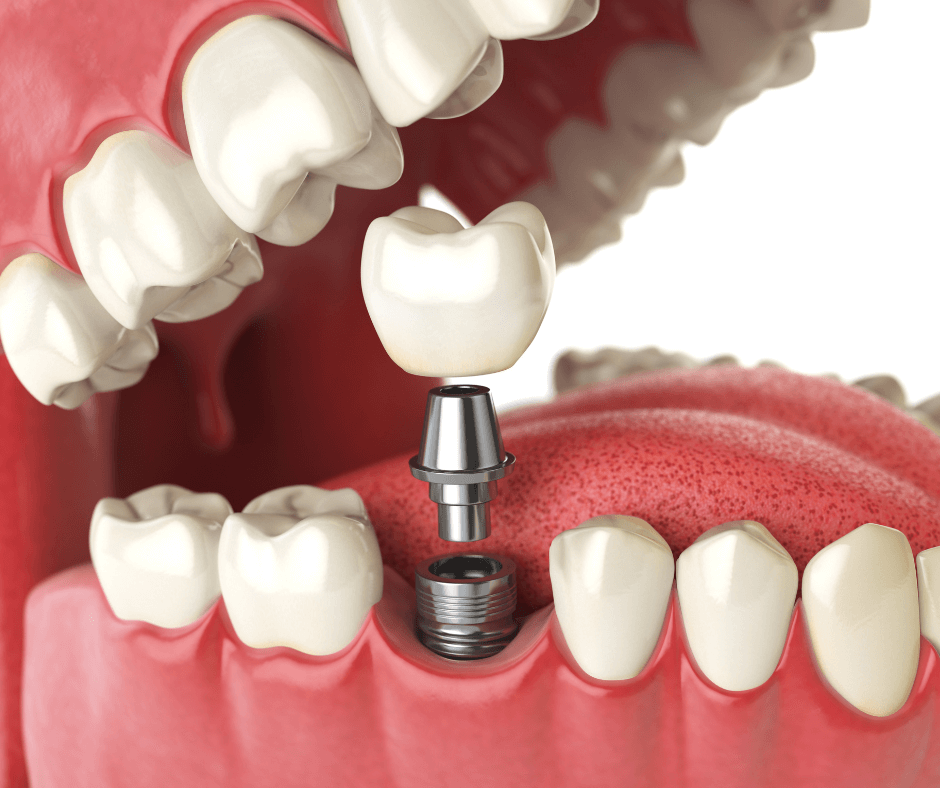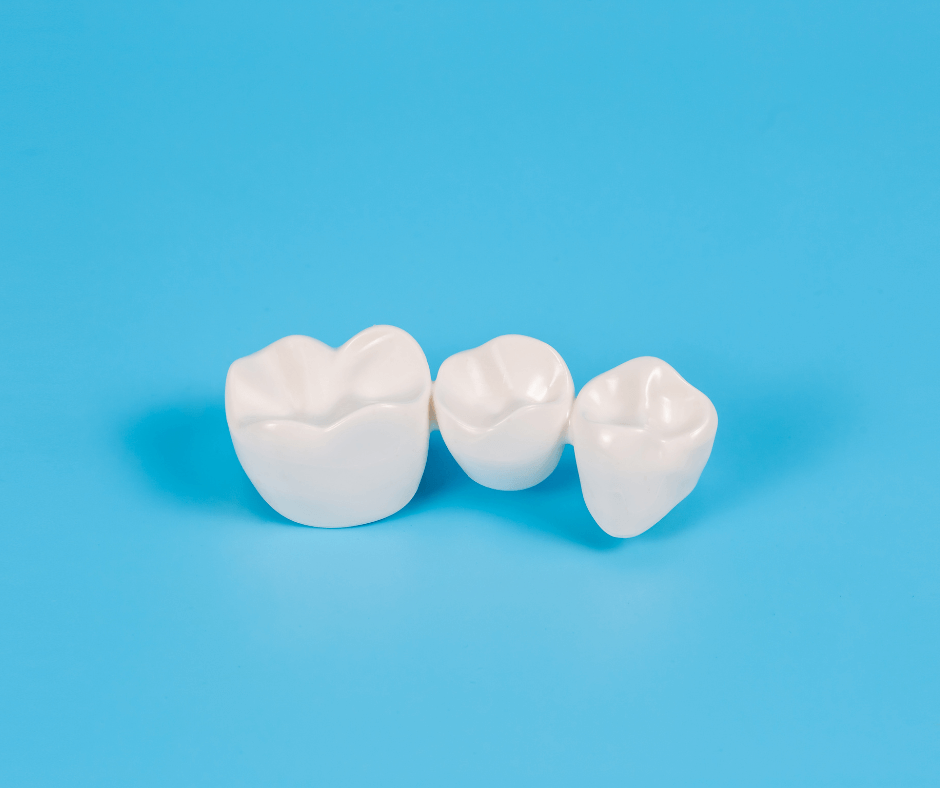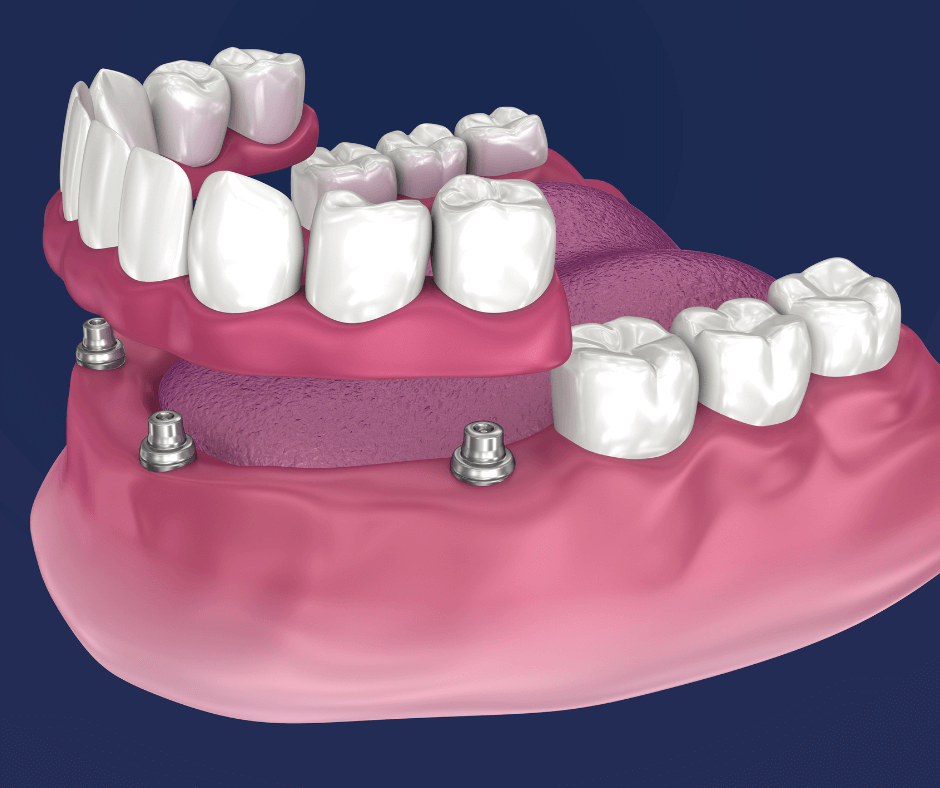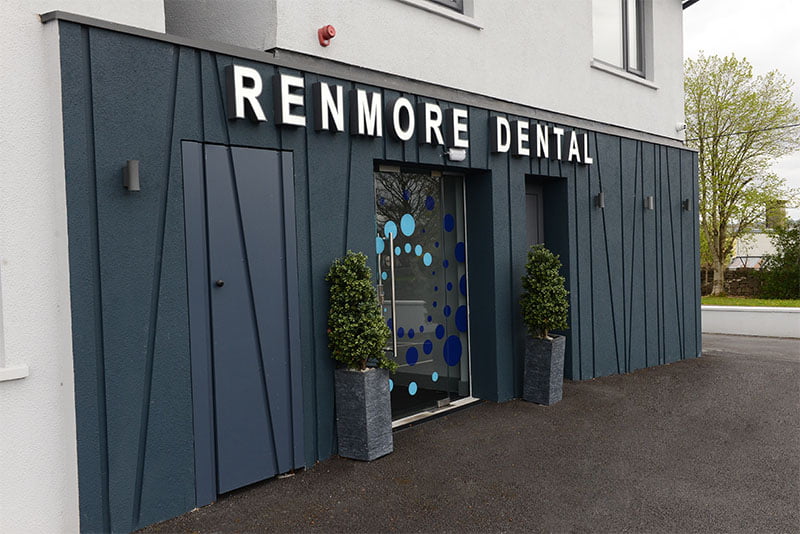Implant treatment has become an increasingly popular method of replacing missing teeth in recent years, with more and more patients opting for this long-term solution. But what exactly are dental implants, and how do they differ from the other treatment options available for missing teeth?
In this guide, we discuss how dental implants work, what their advantages are, and why dental implants may be a suitable treatment option for you.
What are dental implants?
Simply put, a dental implant is the closest possible substitute for a natural tooth in terms of their function, feel and aesthetics. Just like a natural tooth that is made up of a root and a crown, dental implants too are made up of two parts; instead of the root, a titanium screw is placed into the jawbone to hold the dental implant in place, and a porcelain crown is then placed on top, which looks and feels just like a natural tooth.

Dental implants are a long-term, highly effective solution for replacing missing teeth. Their versatility means they can be used to replace a single missing tooth, several teeth together (for example an implant-retained bridge), or provide stability for a dental prosthesis, such as an implant-retained denture.
What are the benefits of dental implants?
A long-term solution: With a good oral hygiene routine and proper maintenance, dental implants are a long-lasting solution for missing teeth.
Natural look and feel: Once the implant has fused with the jawbone and the implant crown has been placed, the tooth will look, feel, and function just the same as a natural tooth, providing the closest possible alternative to your natural dentition.
Improved function and limiting further bone loss: Placing an implant can reduce further bone resorption in the area by slowing down bone loss.
Reliable and successful: At Renmore Dental, we are proud to only use Straumann ® implants, the global-leading brand in implant dentistry. Straumann implants are clinically proven to have implant success rates of 97-99%, even after 10 years (Straumann, 2014).
What steps are involved in getting a dental implant at Renmore Dental?
- The first step is to organise an implant consultation with Dr. Tony McLoughlin to discuss treatment options, and create a treatment plan that is specific to you and your needs.
- A CBCT scan (3D image) may be required to determine the level of bone available. As we have a 3D imaging machine on the premises, this scan can be taken during your consultation appointment with us.
- The tooth will be extracted (if applicable), and the space will need time to heal.
- After sufficient healing, the titanium implant will be surgically placed into the bone under local anesthetic.
- Once healed, the implant can now be restored with a crown. Digital scans and impressions of the implant will be taken and sent to a premium dental lab so the implant crown can be custom made.
- Once the implant crown is made it is then fitted to the implant, and treatment is complete.
What is a bone graft, and why is it sometimes needed to place a dental implant?
If a patient has lost bone (for example, due to periodontal disease or infection) then there may not be enough bone left to place an implant.
However in some cases, bone can be built up again in order to provide enough stability to place an implant, through a procedure called a bone graft.
Bone grafting is a surgical procedure that replaces missing bone, either by using bone from another area, or by using a biocompatible substitute, helping the bone to regenerate in the area and allowing the implant to fully integrate.
Is getting a dental implant a painful procedure?
Dental implant placement is a surgical procedure which is carried out under local anesthetic, so the placement itself will not be painful. Most patients will experience some mild discomfort for a day or two after the implant is placed; this is to be expected with any oral surgery, and can usually be alleviated with general over-the-counter painkillers. Once you follow the aftercare instructions recommended by the dentist, recovery from dental implant placement should be a smooth process. You will see your dentist for several appointments over a number of months throughout implant treatment, so rest assured you will be cared for from the beginning of your treatment journey right through to completion of your treatment and beyond.
How much do dental implants cost?
- The cost of dental implants start from €2,800 per tooth, however the cost varies depending on a patient’s individual treatment plan.
- It is always advised to book in for a dedicated implant consultation for the most accurate estimate of costs.
- At Renmore Dental, we offer flexible payment plans for our implant treatment, where the cost can be spread out over several visits.
- 20% tax relief from Revenue is also available on dental implant treatment through the Med2 scheme.
Who can provide dental implant treatment?
The provision of dental implants requires a highly trained clinician, with the necessary skills and expertise to carry out such a treatment. With over 20 years of experience, Dr. Tony McLoughlin has a special interest in implant dentistry, and provides all of our implant treatment at the practice. In order to provide implant treatment, Dr. Tony trained in the world-renowned Eastman Dental School, London, graduating with distinction in MSc in Conservative Dentistry. Following this he also completed a year-long Straumann implant course, furthering the knowledge and skills required to provide the highest quality dental implants for our patients.
Are dental implants covered under warranty?
At Renmore Dental we provide a 5-year guarantee on the implant fixtures placed, provided the maintenance schedule outlined by the dentist is followed. We provide a 2-year guarantee on all implant reconstructions, including the implant fixtures, crowns, and the restorative components on top of the implants (excluding routine maintenance of retention components of implant retained dentures).
In what ways can dental implants be used?
Implant Retained Bridge
In some cases, implants can be used to replace not just one single tooth, but several missing teeth together, through an implant bridge. This treatment involves the placement of an implant (or implants) into the jawbone which is restored with a fixed bridge, replacing several teeth together rather than individual implant crowns. Unlike traditional bridges, which are supported either side by your own natural teeth, fixed bridges are supported in place by the dental implants, providing a long-term structure to support the bridge, rather than relying on your natural dentition for support and possible damage to the adjacent teeth.

Implant Retained Dentures
As well as being used to replace a missing tooth, implants can also be used in certain cases to help stabilise dentures and prevent them from moving within the mouth, known as implant retained dentures. The implants used for this treatment protrude from the gum slightly, and are specially designed to click into attachments within the denture itself to keep it fixed in place.
This treatment is an ideal solution for those with loose or uncomfortable dentures, or those who can no longer wear dentures due to shrinking gums. Denture stabilisation through the use of implants can vastly improve your quality of life, by allowing you to eat, speak and smile with confidence- knowing that your dentures will not budge.

To see the results of dental implant treatment, check out our Gallery.
Things to Consider
- Dental implant treatment is a lengthy process; depending on each patient’s treatment needs, dental implant treatment can take four to six months from start to finish, but can vary due to individual patient healing, and what other treatments may be required in addition to implant treatment. As implant treatment is quite a demanding and specialised type of treatment, it is important that appropriate time and care is taken to get the best possible final result.
- Some patients may not be suitable for implant treatment. Some factors, such as the presence of periodontal disease, smoking, advanced bone loss, etc. may affect the success rate of placing a dental implant. If you are considering dental implants, it is always best to book in for a comprehensive implant consultation so that the dentist can assess your eligibility and talk through the treatment options that would suit you best.
- Proper aftercare and oral hygiene maintenance is essential following implant treatment; regular dental examinations and routine scale and polish appointments are vital in ensuring the success of your dental implant long-term.
Interested in Dental Implants?
If you are considering dental implants in Galway, we would be delighted to hear from you! Contact our patient care team on 091 757 678 to book a dedicated implant consultation with Dr. Tony McLoughlin, and create the treatment plan that works best for you and your smile.
Study Referenced
Straumann Dental Implant Success Study:
https://www.straumann.com/content/dam/media-center/straumann/en/documents/infographic/Infographic_Derks_Study_EN_low.pdf




